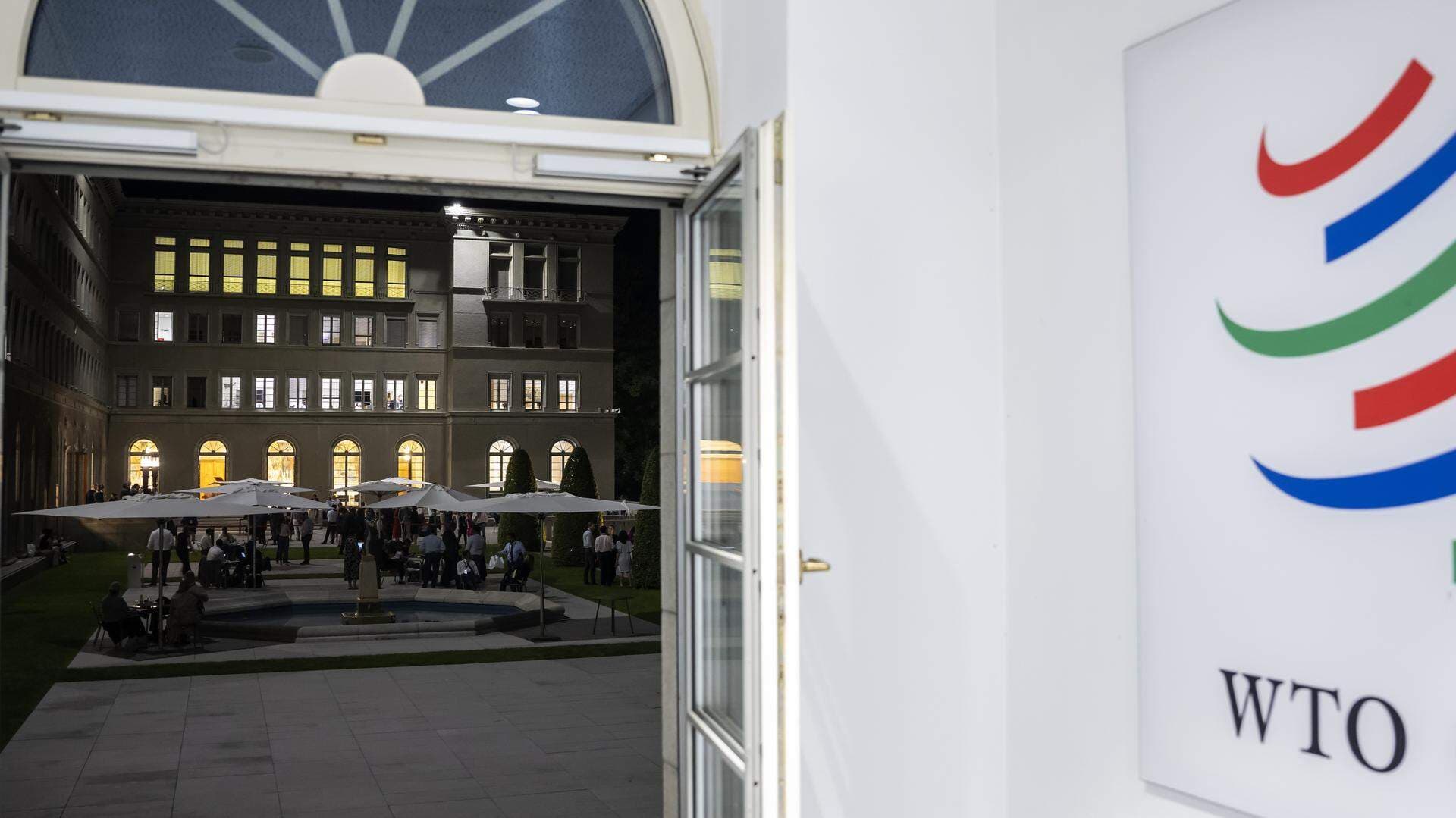Global trade faces headwinds
Businesses need progress in the making of modern trade rules fit for the 21st century. The WTO Ministerial Conference, MC13, in February provides a venue in that sense. However, many obstacles remain to be cleared as global trade still faces headwinds.

On September 12th to the 15th, representatives from around the world gathered in Geneva, Switzerland, for the annual Public Forum of the World Trade Organization, WTO. This year, the forum attracted 3,400 participants from around the world and the Confederation of Swedish Enterprise was represented at the event. The theme of the event centred on the role of global trade in shaping a greener and more sustainable future. Even if sustainability dominated discussions during the four-day event, there was clear awareness of another challenge: the ongoing systemic crisis in the WTO and its impact on the very substance of the organisation.
This year’s Public Forum was held at a time when there is no shortage of complex issues to address. The global economic landscape has undergone significant changes since the multilateral trading system was established seven decades ago. We are witnessing geopolitics and national security take centre stage at the expense of the economic arguments for deeper trade integration. This has in turn resulted in a more complex environment within the WTO.
Major members are accused of playing fast and loose with which rules they choose to follow, and the EU is moving forward with unilateral initiatives that irritate trading partners around the world. Meanwhile, other issues including a growing division between developing countries and developed countries are emerging. At the same time, we are facing a climate crisis that needs to be addressed at the global level and in which trade is set to play a big role.
Considering this, it becomes even more important to create forums for dialogue and to find common solutions to move forward with, where the risks associated with fragmenting the multilateral trading system can be highlighted, and where the fact that global trade as a key source of prosperity, security and peace can come to the fore. The world faces significant challenges that demand common solutions.
MC13 Ministerial Conference around the corner
This year’s Public Forum is particularly interesting considering that the WTO’s next Ministerial Conference, MC13, takes place in Abu Dhabi between February 26th and 29th next year. There are a number of issues that we are following particularly closely in the run-up to that meeting.
The e-commerce moratorium
The eternal question. Since 1998, member states have unanimously decided at each Ministerial Conference to refrain from imposing tariffs on electronic transmissions. That moratorium was extended at MC12 in 2022, but the uncertainty ahead of MC13 persists and is intensifying. A few countries are threatening to block an extension, citing lost customs revenue (despite existing evidence indicating the contrary) and the need for “policy space”. The absence of a joint definition of what an electronic transmission is risks further complicating the situation if the moratorium falls.
The moratorium is a defining issue for businesses and for the WTO as an organisation. If it were to fall, the WTO would, for the first time since its founding, allow member countries to impose tariffs in any form – something the organisation was created to prevent. In terms of optics, this would be disastrous.
For business, it is of the utmost importance that the moratorium is extended, (and preferably made permanent), a move that WTO Director General, Ngozi Okonjo Iweala, also stressed in meetings with us during the Public Forum.
WTO reform
WTO reform is another central issue ahead of the MC13. In particular, it is important to re-establish a functioning dispute settlement system. For some time now, the US has blocked the appointment of new judges to the dispute settlement system’s appellate body, making rulings on dispute settlement that are appealed to the body ineffective. Frustration exists among other member states about the US’s reluctance to find a resolution to discussions on the WTO’s dispute settlement body, and to move forward, the US needs to get involved.
E-commerce negotiations
It has long been the intention to complete plurilateral negotiations, (consisting of a smaller group of WTO members proceeding in their own negotiations), on an e-commerce agreement by MC13. Although that goal remains it will be tough to achieve. Difficult issues remain to be agreed upon, for example the question of data flows, which the EU opposes, and a ban on data localisation requirements. An e-commerce agreement would be highly beneficial for Swedish companies.
Other issues on the agenda in the run-up to MC13 include discussions on industrial subsidies, on which talks have been held, at a very preliminary stage, and the environmental and climate issue. On the latter, several countries are engaging in plurilateral negotiations which for example concern plastic pollution and the reduction of subsidies for fossil fuels. Some form of joint statement is expected at MC13 regarding at least the former of these two issues, and in which China, among others, is involved and heads negotiations.
At the same time, many countries have voiced criticism of the EU, (and of other countries but to a lesser degree), that have developed unilateral environment and climate instruments, such as CBAM and the deforestation regulation. These instruments cause concern among countries that see risks of increased trade costs and barriers to their own economic development. Developed countries’ subsidy-intensive ”green” industrial policies is also something that is concerning in particularly less developed countries.
MC13 will be a real test for WTO members. Business emphasizes the need for modern trade rules and global solutions to face today’s challenges. We hope that these realities will guide preparations ahead of the meeting in February 2024.